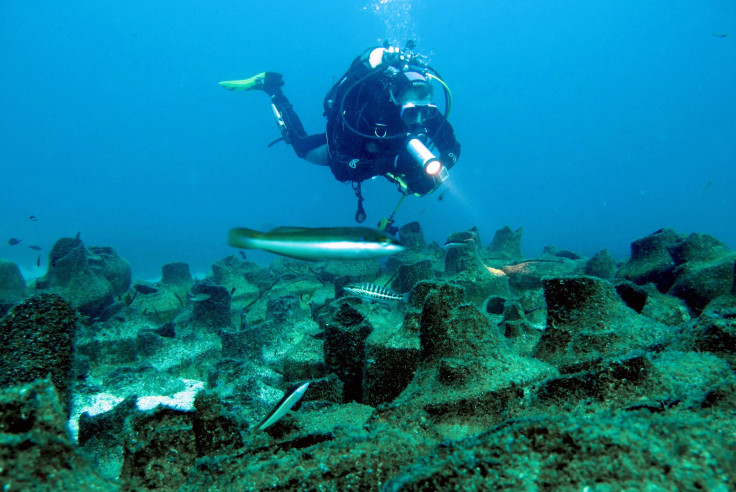Shipwreck, More Than 140 Years Old, Found Off Alaskan Coast

Off the icy shores of Alaska in 1871, more than 1,200 whalers were left stranded when their 33-ship brigade was trapped in packed ice. The whalers eventually were saved, but the ships stayed, eventually sinking into the briny deep and long thought relegated to the mysteries of the sea — that is, until recently.
Archaeologists announced this week they found the fleet of the nearly 144-year-old whaling ships this fall off the coast of Alaska using sensing and sonar technology, ABC News reported. Only the hulls of two ships and the battered remains of the other 31 were found, but the finding marked the first time there had been definitive proof of the lost fleet.
The team searched a 30-mile area of coastline near Wainwright, Alaska, also found 19th century anchors, fasteners and pots whalers once used to render whale blubber into oil, ABC News reported. The freezing of the ships in the middle of the water led archaeologists to call it one of the main reasons behind the decline of the whaling industry.
Archaeologists pointed to climate change as a reason they were able to find the ships, CNN reported. Less ice in the Arctic, caused by climate change, created an easier path for archaeologists to get to the shipwreck.
“Until now, no one had found definitive proof of any of the lost fleet beneath the water,” Brad Barr, a National Oceanic and Atmospheric Administration archaeologist said according to CNN. “This exploration provides an opportunity to write the last chapter of this important story of American maritime heritage and also bear witness to some of the impacts of a warming climate on the region's environmental and cultural landscape, including diminishing sea ice and melting permafrost.”
Archaeologists discover shipwreck 144 years after 33 whaling ships sank off coast of Alaska: https://t.co/Dk1iKRQQtR pic.twitter.com/qbnMyxLHyt
— ABC News (@ABC) January 8, 2016Old ships, and their treasure, have long been sought by treasure hunters and archaeologists around the globe. Last month, Columbia announced treasure hunters found the wreckage of the Spanish galleon San Jose, thought to contain billions in gold, jewels and silver, History.com reported.
© Copyright IBTimes 2024. All rights reserved.





















